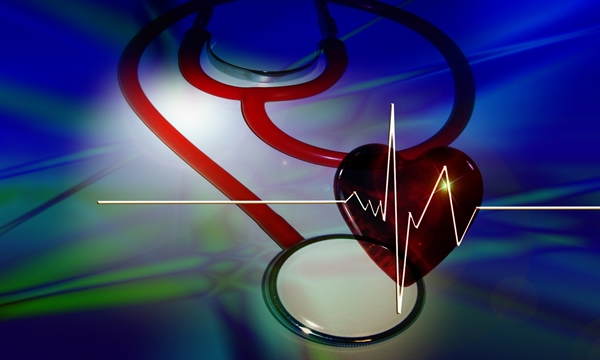30 Jan. 2020. Algorithms used in analytical software for digital stethoscopes to diagnose irregular heart rhythms received marketing clearance from the U.S. Food and Drug Administration. The software, which interprets and analyzes heart sounds rather than electrical signals, is made by Eko Devices Inc. in Berkeley, California.
Physicians use a stethoscope, perhaps the one piece of medical equipment most familiar to lay people, to listen to a patient’s heart rhythms for signs of heart valve problems. When heart valves don’t function properly, blood flow is disrupted, leading to possible complications such as heart failure, stroke, blood clots, or irregular heart rhythms. These valve disruptions can occur due to valves not closing properly, or thickening and hardening of the valves that narrow the opening and restrict blood flow. And valve disruptions also emit more turbulent sounds, audible to the trained ear of clinicians.
Eko says its smart stethoscope listens to a patient’s heart rhythms, but also records the sound for analysis by machine-learning algorithms to detect and diagnose the nature of the problem. The algorithms, says the company, are trained by multiple data sets, including real-world data. The software, according to Eko, also detects both irregular heart rhythms, such as atrial fibrillation, along with other heart conditions, including where rates are too fast or slow, as well as premature ventricular contractions, extra heart beats that disrupt normal heart rhythms.
Eko also offers a device called the Duo that combines a stethoscope and single-lead electrocardiogram or ECG. The Duo has an earpiece and connects wirelessly to a mobile app that interprets and displays the captured signals. Eko and Mayo Clinic, which originally developed the technology, collaborate on an algorithm to screen for heart failure. That algorithm, says the company, detects a heart’s malfunctioning left ventricle, the chamber that pumps blood through the aorta to the rest of the body.
A study published a year ago in the journal Nature Medicine, shows ECG data combined with algorithm-powered analysis diagnoses heart valve disease in patients without symptoms with an accuracy of 86 percent, and true positive and negative readings also of 86 percent. In addition, individuals in the study testing positive with the algorithm face a risk four times higher of developing heart disease than those testing negative.
Eko says its smart stethoscope and Duo are designed to enable first-line clinicians to screen earlier for heart rhythm problems than is normally done today. Earlier detection, says the company, can enable treatment to begin earlier, well before symptoms appear, and help reduce more serious complications, such as stroke. “Our vision since day one,” says Eko Devices CEO Connor Landgraf in a company statement, “has been to build seamless technology that helps providers more accurately detect heart disease, the leading killer in the world, by putting the ears of a cardiologist in any clinician’s stethoscope.”
FDA cleared Eko’s software under its 510(k) pathway for premarket notification. For 510(k) authorization, medical device developers need to show their systems are “substantially equivalent” in safety and efficacy to current devices on the market.
More from Science & Enterprise:
- Update – Enrollment Opens in Apple Medical Studies
- NIH Funds Augmented-Reality Endovascular System
- Math Model to Gauge Heart Attack Risk from Plaques
- Algorithm Devised for Fast Heart Rhythm Screening
- Electronic Tattoo Continuously Monitors Blood Pressure
* * *


 RSS - Posts
RSS - Posts
[…] FDA Clears A.I. Algorithms for Stethoscopes […]